Health
For quality sleep, timing is everything, experts say: Here’s the secret of successful slumber

When it comes to measuring sleep, most people focus on hitting a certain number of hours each night — and while that’s part of the equation, experts say it might not be the most important metric.
Instead, a recent review suggests that the regularity of sleep — drifting off and waking up at roughly the same time each day — is the more critical component.
Harvard-affiliated researchers presented the findings during a recent panel of the National Sleep Foundation (NSF).
SURPRISING SLEEP TRENDS REVEALED IN NEW SURVEY, INCLUDING THE RISE OF ‘SCANDINAVIAN SLEEPING’
After conducting a review of 63 publications, the panelists concluded that “consistency of sleep onset and offset timing is important for health, safety and performance,” according to the published study in the journal Sleep Health.
“When we talk about sleep, duration gets the most attention,” Matthew Weaver, a member of the Brigham and Women’s Hospital’s Division of Sleep and Circadian Disorders in Boston and co-first author of the panel’s report, said in an interview with The Harvard Gazette.
A recent review suggests that regularity of sleep is more critical than the number of hours slept. (iStock)
“That is an important component of healthy sleep, but it’s just one component. Increasing evidence has accumulated over the past few years that sleep regularity is also very important.”
LACK OF SLEEP IS COMPROMISING THE MENTAL HEALTH OF 78% OF ADULTS, SURVEY FINDS
Many studies have shown that irregular sleep has been linked to adverse health outcomes, according to Weaver.
“It was associated with worse metabolic outcomes, like obesity and metabolic syndrome, but also cardiovascular disease, hypertension, an increase in a number of different inflammatory markers, and increased pain, to name a few,” he said.
“When we disrupt our circadian rhythm by going to bed and waking up at different times each day, we can experience a number of negative health consequences.”
And when people have inconsistent sleep patterns, that tends to have a negative effect on their sleep duration and its quality, research has shown.
“Mental health was also worse, with irregular sleep being associated with more depression, a worse mood, lower self-esteem and lower general well-being,” Weaver noted.
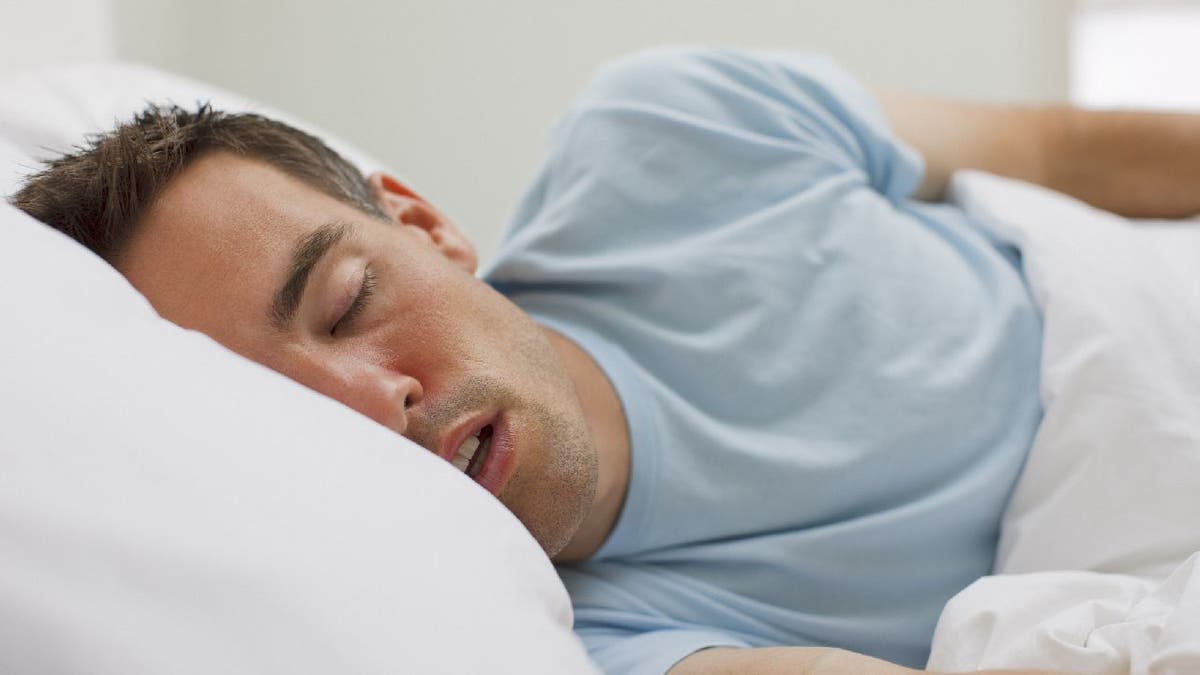
When people have inconsistent sleep patterns, that tends to have a negative effect on sleep duration and quality, research has shown. (iStock)
Dr. Harneet Walia, director of sleep medicine at Miami Cardiac & Vascular Institute, part of Baptist Health South Florida, was not part of the Harvard panel, but shared her input on the findings.
“Where sleep duration is important, having a regular sleep/wake routine has an important connection to our overall health,” she told Fox News Digital in an email.
SLEEP EASY: 6 WAYS TO ADJUST YOUR BEDROOM SO YOU GET A GOOD NIGHT’S REST
An irregular sleep/wake schedule is associated with a host of negative health consequences, Walia said.
These include an increased risk of diabetes, weight gain, high cholesterol and heart-related issues, such as blood pressure and atherosclerosis (hardening of the arteries).
It is also associated with an increased risk of depression, she added.
“Patients with irregular sleep/wake rhythm disorder may also experience symptoms of difficulty sleeping or/and excessive daytime sleepiness,” Walia added.
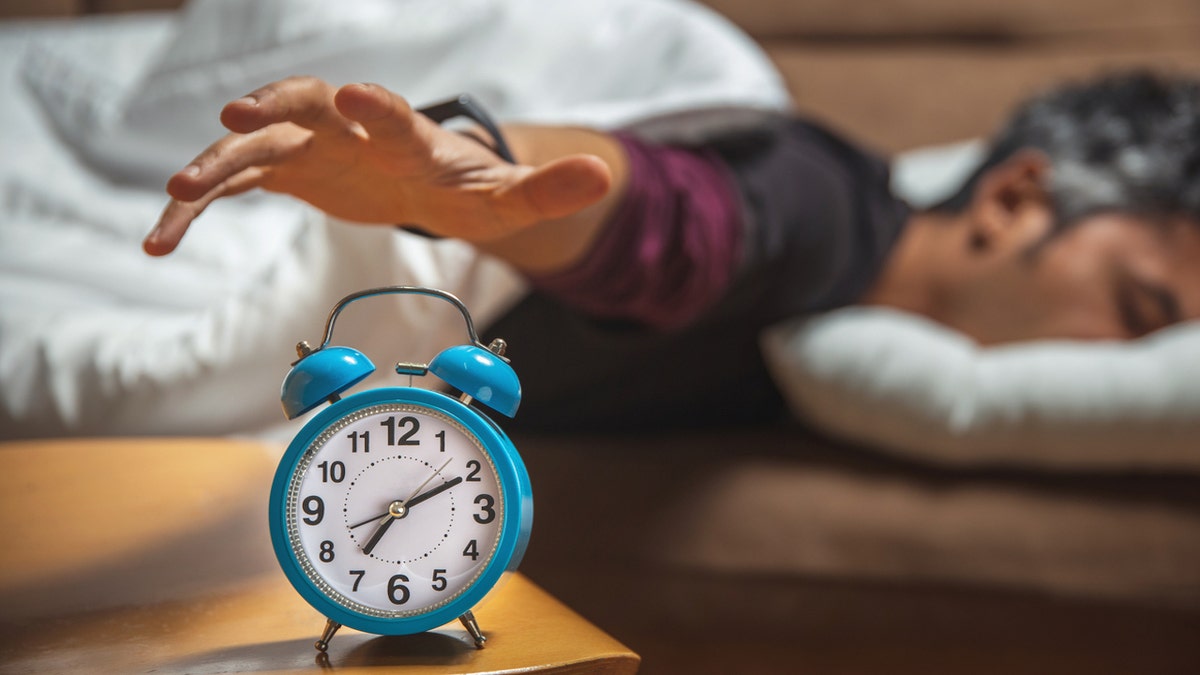
Some studies have suggested that just one hour of deviation in sleep is enough to negatively impact metabolism and heart health. (iStock)
Not everyone has the same optimal bedtimes and wake times, according to Weaver.
“There are inter-individual differences in the timing and duration of our sleep that are guided by our circadian rhythms,” he said.
As far as what constitutes “irregular” sleep, that is not entirely clear, the researcher said.
ASK A DOC: ‘CAN WARMING MY FEET REALLY HELP ME SLEEP BETTER?’
“We wanted to get to a number that tells us how much is too much variability, but we couldn’t quite get there,” Weaver said.
Some studies have suggested that just one hour of deviation in sleep is enough to negatively impact metabolism and heart health, he noted.
The panel shared that irregular sleep — in addition to impacting health outcomes — was also linked to worse academic performance, attention and reasoning.

Not everyone has the same optimal bedtimes and wake times, according to a sleep expert. “There are inter-individual differences in the timing and duration of our sleep that are guided by our circadian rhythms,” he said. (iStock)
“Some of the strongest papers showed GPA was worse among college students when their sleep was more irregular,” Weaver pointed out.
Dr. Raj Dasgupta, chief medical adviser at Sleepopolis in California, who was not involved in the study, pointed out that our bodies have a natural circadian rhythm that regulates the sleep-wake cycle and other bodily functions.
HEALTH TIPS FOR 2023: SLEEP ESSENTIAL FOR RESTORING YOUR BODY AND MIND
“When we disrupt our circadian rhythm by going to bed and waking up at different times each day, we can experience a number of negative health consequences, including insomnia, daytime fatigue, difficulty concentrating and increased risk of chronic diseases,” he told Fox News Digital.
Overall, the experts agreed that regularity is an important component of healthy sleep.

A sleep expert recommends waking up every day at the same time, which serves as an “anchor point” for maintaining regularity for the rest of the day. (iStock)
“It’s not just duration, but also regularity and quality,” Weaver said. “Sleep is the third pillar of health, equally important as diet and exercise, if not more.”
Sleep impacts all aspects of life, the expert noted — health, performance, learning, memory and even the “critical biological processes related to healthy aging.”
WWII-ERA MILITARY SLEEP METHOD COULD HAVE INSOMNIACS NOD OFF QUICKLY, SOME CLAIM: ‘PEACE AND CALM’
“When we think about life and what makes us happy, like being able to communicate well, to feel good, and have the energy to do the things we want to do, sleep — not just duration but also regularity — is critical for all of those things,” Weaver noted.
Tips for more consistent sleep
The experts offered some tips for fostering a more regular sleep schedule as part of a healthy lifestyle.
CLICK HERE TO SIGN UP FOR OUR HEALTH NEWSLETTER
“Plan your day so that you get the sleep that you need,” Weaver told The Harvard Gazette. “Make it as regular as you can and prioritize sleep.”
“If you want to have a regular sleep schedule, ask yourself: ‘How do I get there?’”
“Sleep is the third pillar of health, equally important as diet and exercise, if not more.”
“If you need to go to bed at 10 every night to get the full amount of sleep you need, then, ideally, you would settle into a pattern that is regular enough where, after a little while, you don’t even need to set an alarm to wake yourself up, and you would have a healthy, regular sleep schedule that works for you.”
If Walia’s patients share that they have a lot of variability in their schedules, she said she advises them to start off by waking up every day at the same time, which serves as an “anchor point” for maintaining regularity for the rest of the day.
For more Health articles, visit www.foxnews.com/health.

Health
The Best Carb Pairings for Weight Loss, Energy & Hormone Balancing

Use left and right arrow keys to navigate between menu items.
Use escape to exit the menu.
Sign Up
Create a free account to access exclusive content, play games, solve puzzles, test your pop-culture knowledge and receive special offers.
Already have an account? Login
Health
This daily beauty routine could be ruining your hair, experts warn
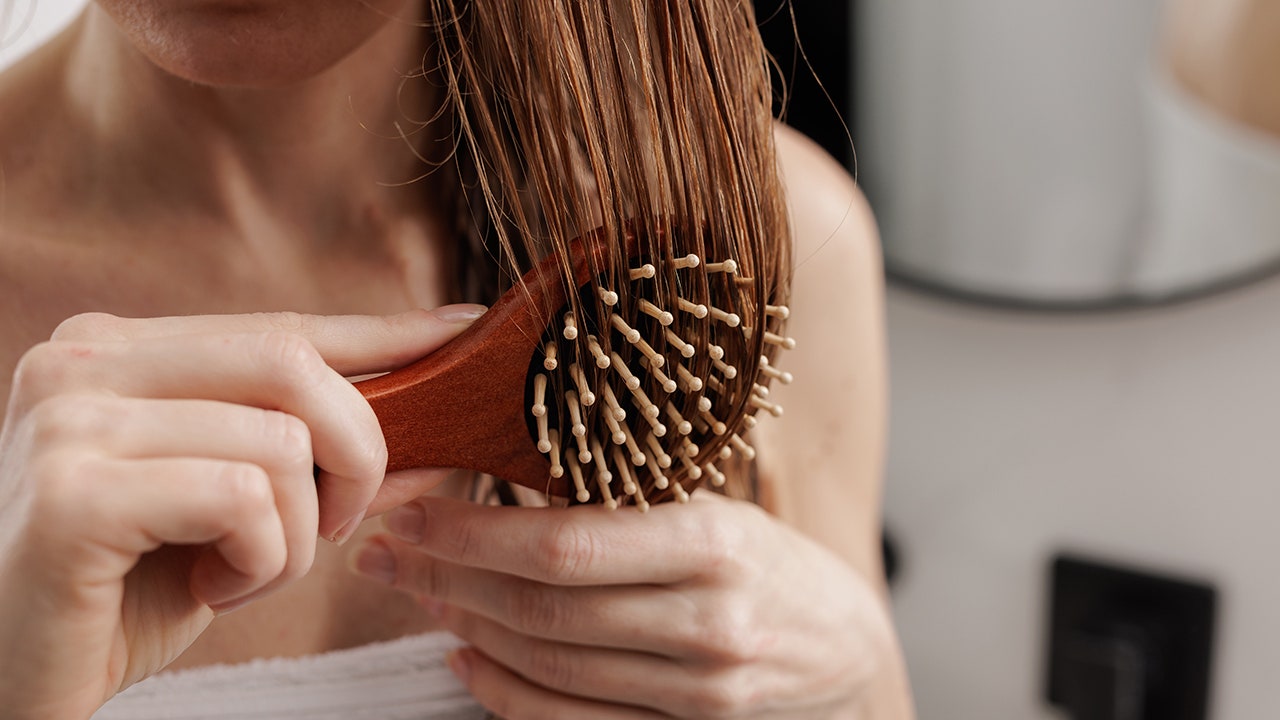
Clean beauty brand owner calls for higher safety standards
In an on-camera interview with Fox News Digital, TV personality and clean beauty brand owner Emily Austin expressed her excitement about the push for change with the MAHA movement, calling for U.S.-made products to meet EU standards.
For those with a hair care routine, a brush is an essential tool for daily upkeep — but brushing hair while it’s wet could cause more harm than good.
The common habit could permanently weaken hair at a “molecular level,” according to Dr. Mehmet Erdogan, co-founder and hair transplant surgeon at Smile Hair Clinic in Istanbul.
This could lead to increased breakage and thinning over time. A 2022 study from the University of Manchester reflected this, finding that moisture can change hair’s response to stress.
OZEMPIC, OTHER SEMAGLUTIDES LINKED TO HAIR LOSS: HERE’S WHAT TO KNOW
“When hair gets wet, it undergoes significant physical changes that can affect its ability to handle stress from brushing,” Erdogan said in comments shared with Fox News Digital.
“The water causes the hair shaft to swell, stretches the cuticle and makes it more susceptible to breakage.”
“Applying the right hair care when wet is the best way to maintain healthy hair long-term and to prevent unnecessary thinning caused by breakage,” an expert shared. (iStock)
Although research has shown that wet hair stretches more than dry hair before breaking, Erdogan clarified that this doesn’t mean the hair is more flexible and resilient.
“The opposite is true – this stretching damages the internal protein structure, leading to weaker hair over time,” he warned.
“Wet hair is more fragile, and rough brushing can cause breakage.”
“The brush pulls on swollen, weakened strands, causing them to stretch beyond their capacity. As they dry, they don’t return to their original state and remain damaged at a structural level.”
MEN GOING BALD TURN TO ‘NEW BOTOX’ FOR HAIR LOSS TREATMENT
Ashley DiMatteo, owner of Ashley Lauren Beauty Lounge in Westchester, New York, told Fox News Digital in an interview that the salon has “definitely seen” damage from brushing wet hair.
“Wet hair is more fragile, and rough brushing can cause breakage,” she said. “But it’s rarely just one issue – hair loss or damage often comes from a combination of factors like stress, hormones, heat styling or chemical treatments.”
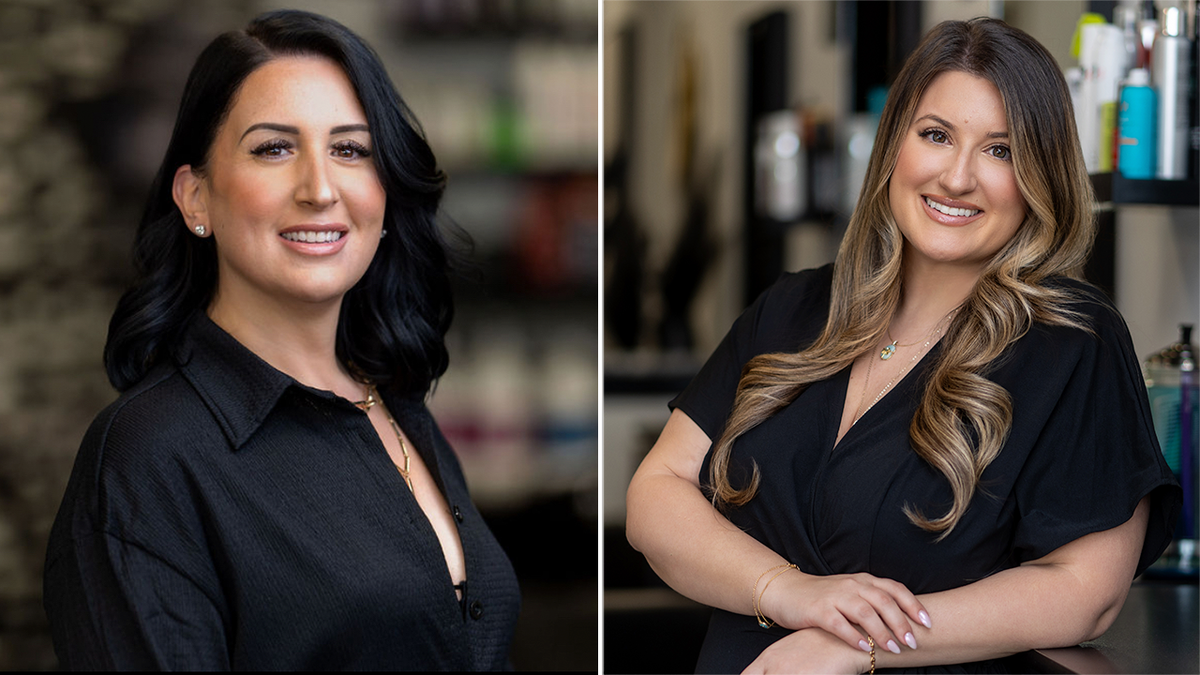
Ashley DiMatteo (left), owner of Ashley Lauren Beauty Lounge in New York, and Briana Delvecchio (right), a hairdresser and color stylist of 14 years. (Jesse Rinka Photography)
Brianna Delvecchio, a color specialist and hairdresser at DiMatteo’s salon, agreed that brushing wet hair can cause breakage, especially while doing so roughly or with the wrong tool.
Factors like stress, diet, hormones and overprocessing can also play a role in hair damage, she confirmed.
Those who have fine and chemically treated hair – whether colored, permed or relaxed – are “especially susceptible” to wet brushing damage, since their protein structure is “already altered,” Erdogan noted.
Tips to minimize hair damage
The risks don’t mean people should skip brushing altogether, Delvecchio said, as not brushing wet hair can sometimes result in a “knotted, matted mess.”
“Brushing is necessary — just do it gently and in the right way,” she advised.
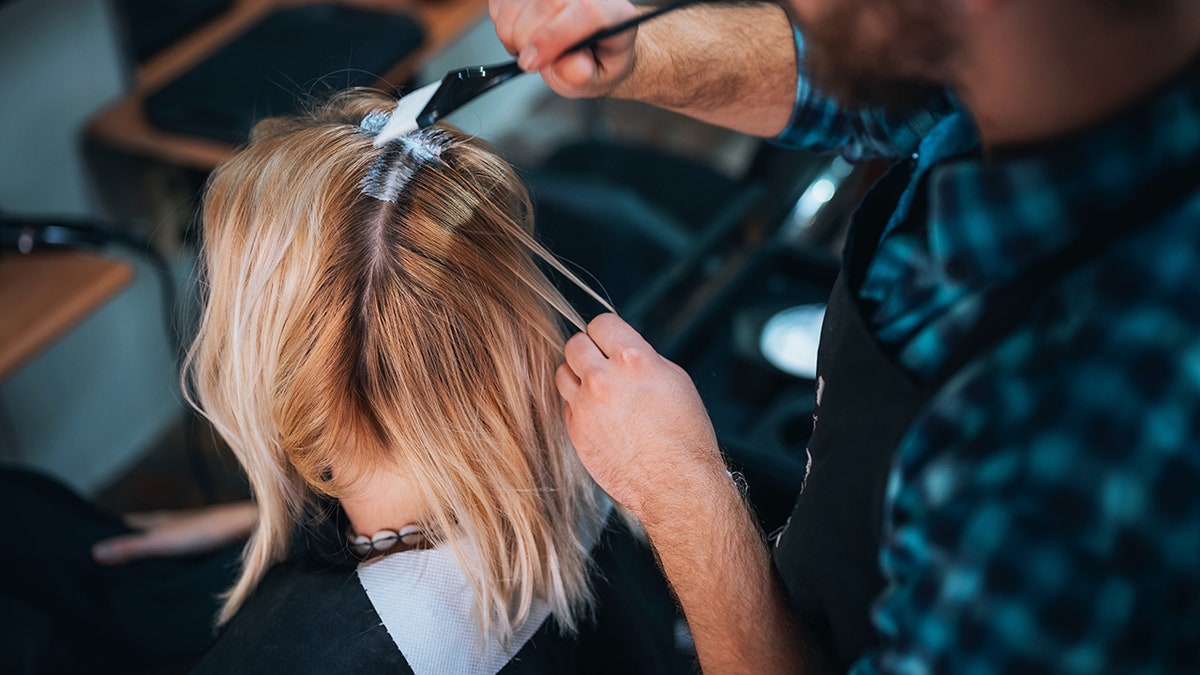
People who have chemically treated hair are more susceptible to damage, according to experts. (iStock)
With her salon clients, DiMatteo recommends taking a “gentle approach” to hair, protecting it from heat, avoiding rough brushing and limiting chemical services.
“We also take time to talk about scalp health, nutrition and lifestyle, because those all play a role,” she told Fox News Digital. “And most importantly, don’t ever feel embarrassed or shy to speak to your stylist or local salon. We’re here to help.”
HAIR GROWTH COULD SLOW DOWN WITH THIS POPULAR DIET PLAN, STUDY REVEALS
To lower the risk of hair damage, experts recommend using a wide-tooth comb or flexible detangling brush.
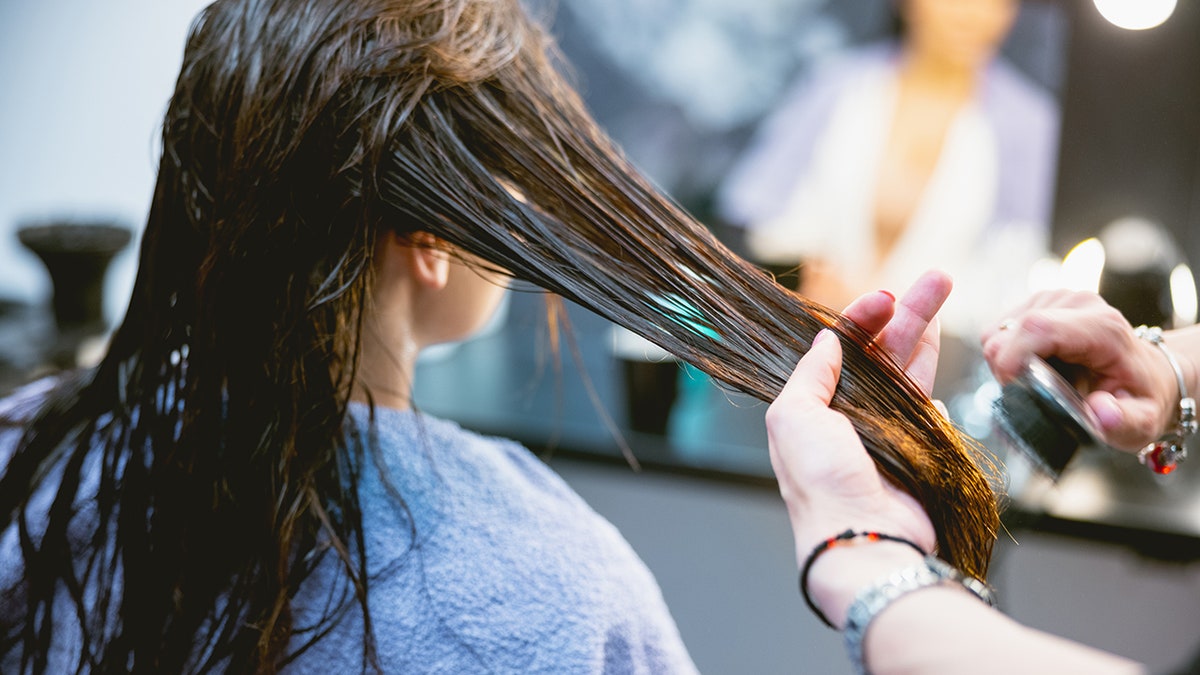
Experts recommend brushing hair from the bottom and working up to avoid damage. (iStock)
“The flexible bristles are great for detangling without too much tension,” Delvecchio said. “It’s a solid option for all hair types, as long as you’re still gentle and patient.”
The salon owner also suggested using a leave-in product to help soften and hydrate the hair, making it “much easier for the comb to glide through.”
“Technique matters, too – always start from the bottom and gently work your way up,” DiMatteo advised.
Adding heat to wet hair can “multiply the damage,” Erdogan warned.
CLICK HERE TO SIGN UP FOR OUR HEALTH NEWSLETTER
For those with straight hair, it’s best to allow it to partially air-dry before combing, according to the hair transplant surgeon.
The American Academy of Dermatology Association also recommends this approach.
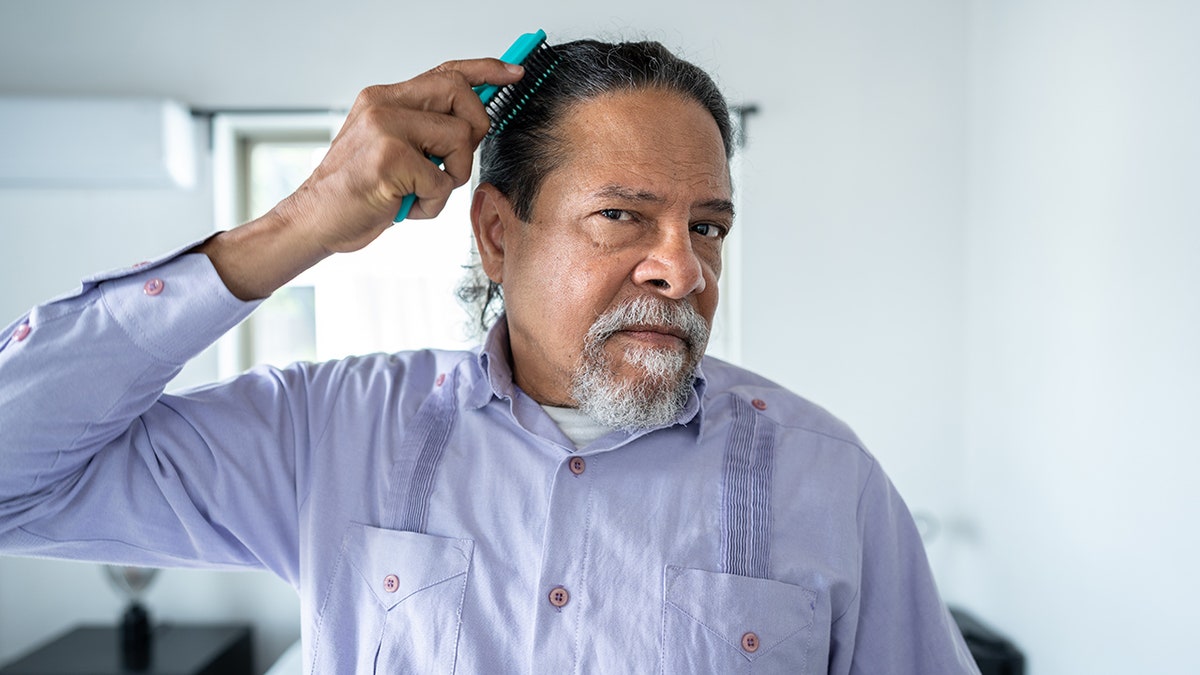
Using a flexible detangling brush or wide-tooth comb is best for the hair, experts advise. (iStock)
Delvecchio advised going “easy on your hair” overall, especially when it’s wet.
For more Health articles, visit www.foxnews.com/health.
“Use heat protectant, lower the heat on your tools, avoid overlapping bleach and keep up with trims,” she suggested.
“Also, brush regularly (wet or dry) to prevent tangles and breakage,” she went on. “Hair is delicate, but with the right habits, it can stay strong and healthy.”
Health
MedVi: Real Costs, Facts and Figures | Woman's World

Use left and right arrow keys to navigate between menu items.
Use escape to exit the menu.
Sign Up
Create a free account to access exclusive content, play games, solve puzzles, test your pop-culture knowledge and receive special offers.
Already have an account? Login
-

 News1 week ago
News1 week agoRead the Full ‘Make America Healthy Again’ Report
-
Movie Reviews1 week ago
Movie Review: 'Pee-wee as Himself' unmasks Paul Reubens
-

 World1 week ago
World1 week agoNeo-Nazi cult leader extradited to US for plot to kill Jewish children
-

 Technology1 week ago
Technology1 week agoDiscord might use AI to help you catch up on conversations
-

 Movie Reviews1 week ago
Movie Reviews1 week agoMovie review: 'Dogma' re-release highlights thoughtful script – UPI.com
-

 Business1 week ago
Business1 week agoPlastic Spoons, Umbrellas, Violins: A Guide to What Americans Buy From China
-

 Science1 week ago
Science1 week agoTrump Has Cut Science Funding to Its Lowest Level in Decades
-

 World1 week ago
World1 week agoCade Cunningham Gains $45 Million From All-NBA Honors













